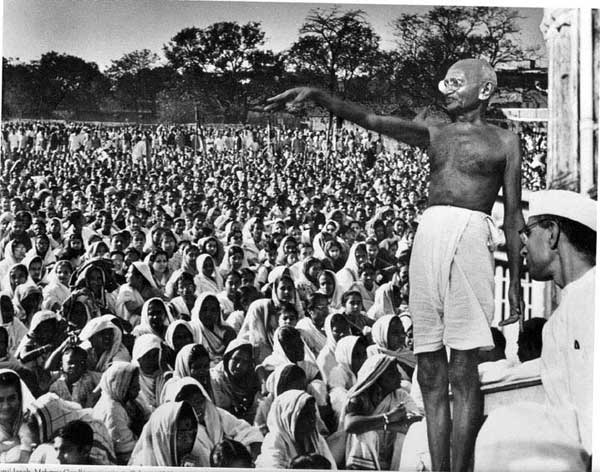During 1905 and 1906 the swadeshi spirit spread throughout the country. More important, it forced its way into the mainstream of Indian politics.
At the Benaras Congress of 1905 a resolution was passed in support of the boycott movement.
This was the first time the national body had taken up such a step. The next year the wording of the resolution was made even stronger.
ADVERTISEMENTS:
Boycott was no longer a matter of interest to Bengalis alone, but an issue of all-India importance.
It was at this time that signs of cleavage began to grow evident in the Congress. The old guard i.e., ‘Moderates’, led by men like Pherozeshah Mehta, Gopal Krishna Gokhale and Surendranath Banerjee were afraid of proceeding too quickly.
However, the Extremists led by Tilak, Lala Lajpat Rai, Bipinchandra Pal and Aurobindo Ghosh felt that Swadeshi was not a simple industrial movement, nor Boycott merely a means to undo the Partition.
ADVERTISEMENTS:
Both were part of a great turning of the national consciousness away from foreign ideas and institutions.
The difference between the Moderates and the Extremists regarding interpretation and application of the words like boycott, swadeshi, and swaraj gave rise to a situation where the interpretation of the word swaraj by the Congress became very important because for some time the significance of this crucial term was left undefined.
Moderates insisted on limiting the movement to urban based middle class intelligentsia whereas extremists believed in involving the masses for effective political action.
Moderates insisted on the use of constitutional methods only whereas extremists wanted to apply extra-parliamentary pressure tactics like Boycott campaign to achieve their objectives.
ADVERTISEMENTS:
At the Calcutta Congress of 1906 Dadabhai Naoroji equated Swaraj with ‘colonial self-government’.
This interpretation, considered drastic by many veterans, fell short of the Extremists’ position. Bipin Chandra Pal wrote that India must attain ‘absolute autonomy free from foreign control’.
Aurobindo Ghosh gave bold expression to this demand for complete independence-the necessary condition for national unity-in Bande Mataram and stated liberty as the first requisite for the sound health and vigorous life of a nation.
Although most Moderates were willing to back Boycott, promote Swadeshi, and support a sort, of national education, but none of them were ready to accept the Extremists’ vision of the goal.
In fact G. K. Gokhale said that only madmen outside lunatic asylums could think or talk of independence.
The Moderates desired India’s freedom and greatness, but they were not in a hurry to have it. The Moderates, stuck in their old groove.
The hangover of the prevailing tension between the Moderates and the extremists acted as the background for the Surat Session of Congress that was held in December 1907.

